On June 27, 2024, the ifo Institute's Annual General Meeting wasn't just a routine gathering; it was a celebration of the Institute's 75th anniversary. Held in the grand setting of Ludwig-Maximilians-Universität's Great Hall, the event was marked by reflections on the past and, more importantly, forward-looking discussions. Under the theme "Social Market Economy 2049: What will our prosperity look like, and who will share in it?" attendees delved into future challenges, potential scenarios, and strategies to ensure equitable benefits from the social market economy model.
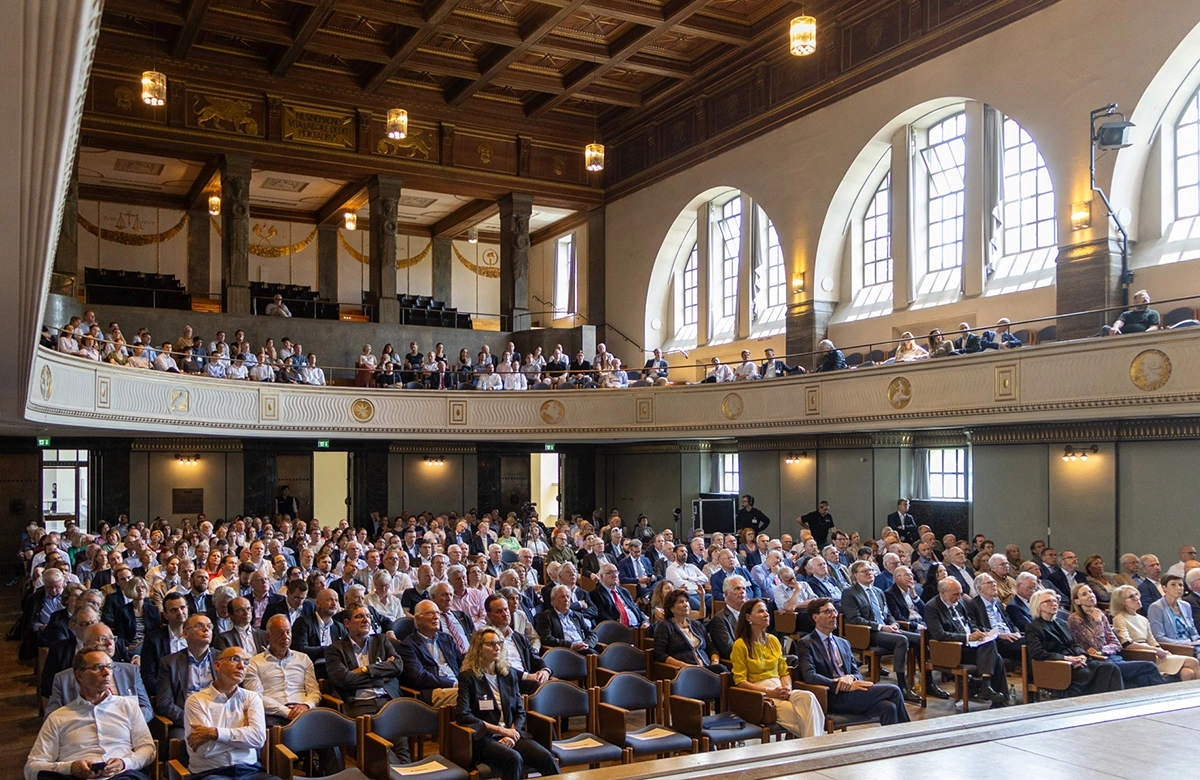
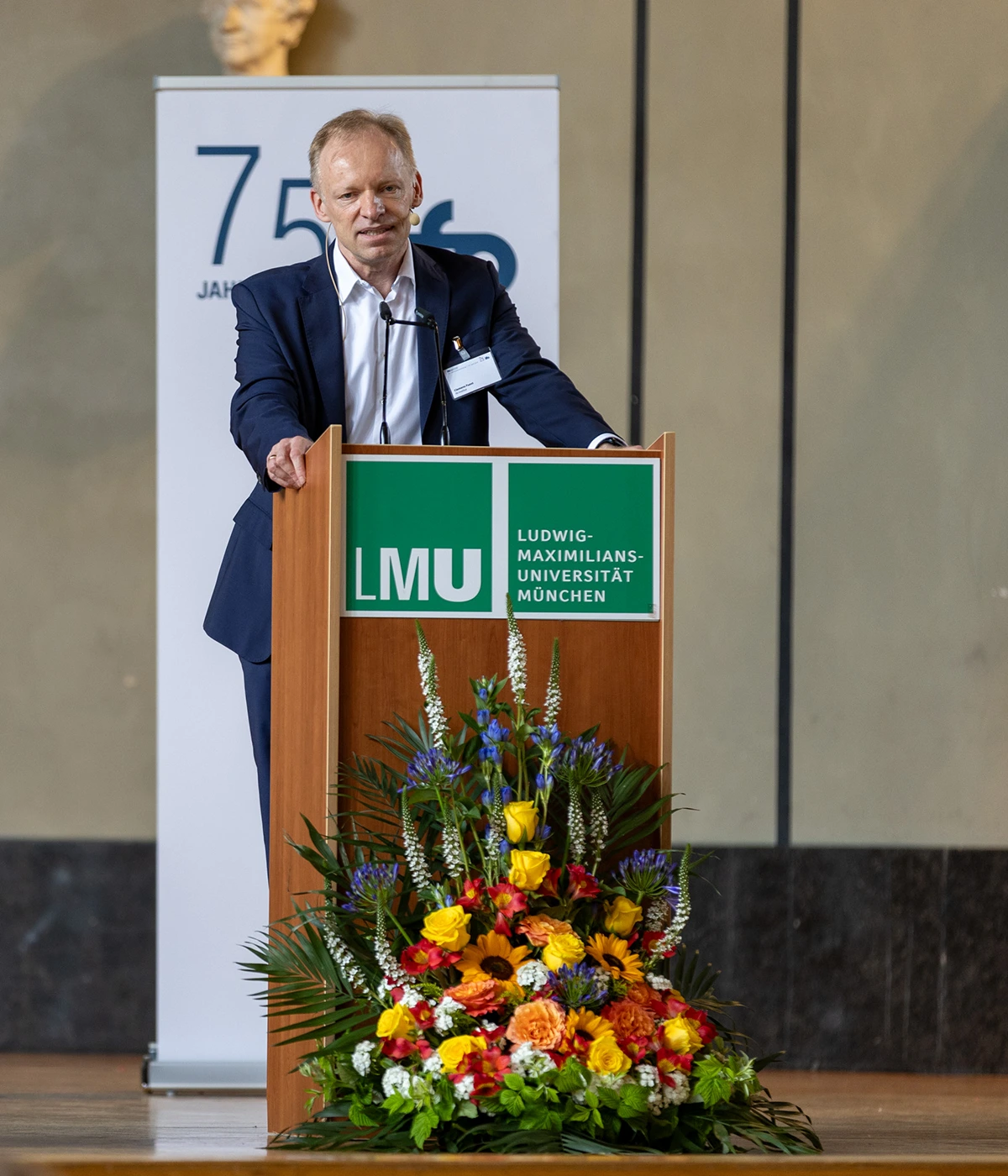
75 Years of Social Market Economy
Clemens Fuest, President of the ifo Institute, began by linking the social market economy to Ludwig Erhard, a pivotal figure in the institute’s founding 75 years ago. Erhard championed competition and market trust as central elements of this system, which enjoys wide support among the public and is credited with ensuring satisfactory prosperity levels. However, this economic model faces significant challenges, notably a labor shortage leading to declining production potential. Alarmingly, Germany records the lowest working hours per employee globally, not just due to high part-time employment but also a tax system that seldom rewards overtime. Additional challenges include the need for decarbonization, adapting to climate change impacts, navigating foreign trade frictions, and catching up on digital and public infrastructure.
Between Cutting-Edge Research and Practice
Christian Lindner, former Federal Minister of Finance, highlighted in his opening remarks that Germany’s Basic Law, also marking its 75th anniversary, laid the groundwork for today’s decentralized economic order, safeguarding private property. Today’s economic system, shaped by the social market economy, emerged from this foundation. Current debates over high subsidies for climate transition and climate-friendly technologies suggest a deviation from the social market economy’s principles, which demand clear stability policies, especially in fiscal decisions.
A shift from prescribed and selective support policies to the inherent decentralism of the social market economy is crucial. Lindner stressed that individual creativity and competition foster progress, contingent upon improved conditions for all economic actors and a shift towards personal responsibility and entrepreneurial risk-taking.
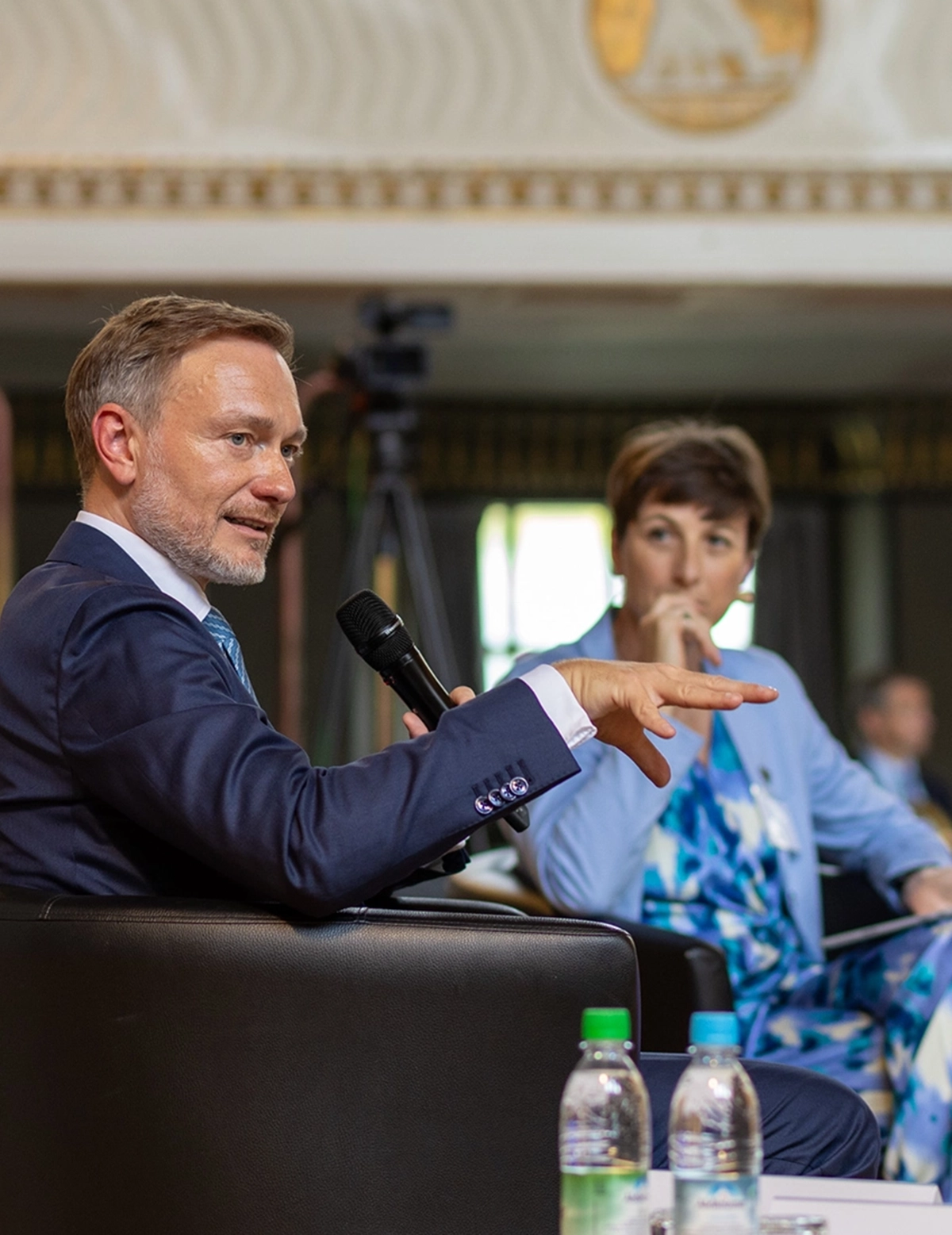
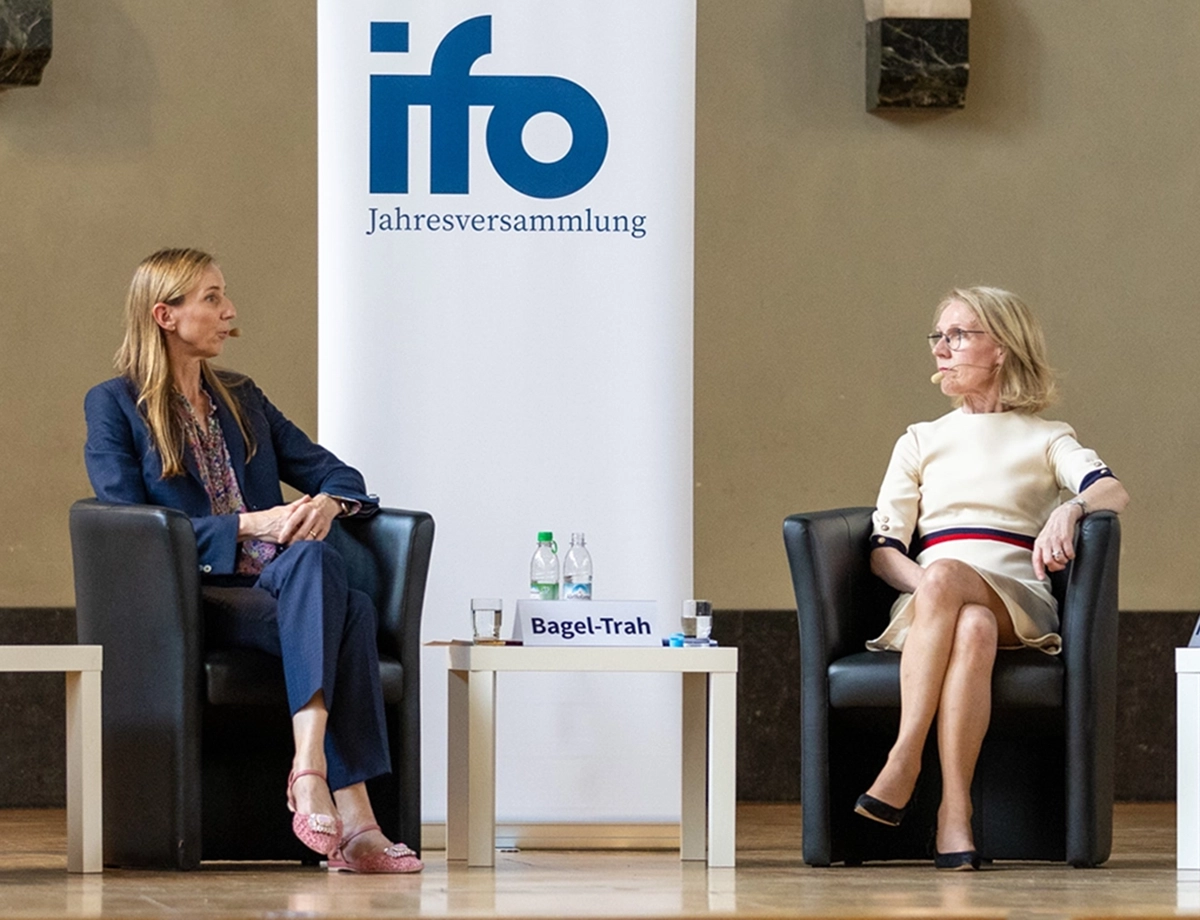
Responding Flexibly to Current Problems
Simone Bagel-Trah, Chairwoman of the Supervisory Board and Shareholders' Committee of Henkel AG & Co., argued that companies must individually address current economic issues without awaiting political directives, requiring long-term planning security for investments. Additionally, enhancing the attractiveness of workplaces through flexible working models and further training is crucial.
Annette Niederfranke, former State Secretary and Director of the International Labour Organization (ILO)/Germany, emphasized the need for early investments in education and workforce inclusion, particularly supporting women with reliable childcare solutions to encourage workforce participation.
Structural Change is Unavoidable
Monika Schnitzer, Chairwoman of the German Council of Economic Experts, acknowledged the inevitability of structural change, urging clear communication from politicians about chosen paths, such as the implementation of CO2 levies. She advocated for a moderate debt approach over a restrictive debt brake, emphasizing the need for a clear roadmap and enforceable rules to prevent fiscal excesses.
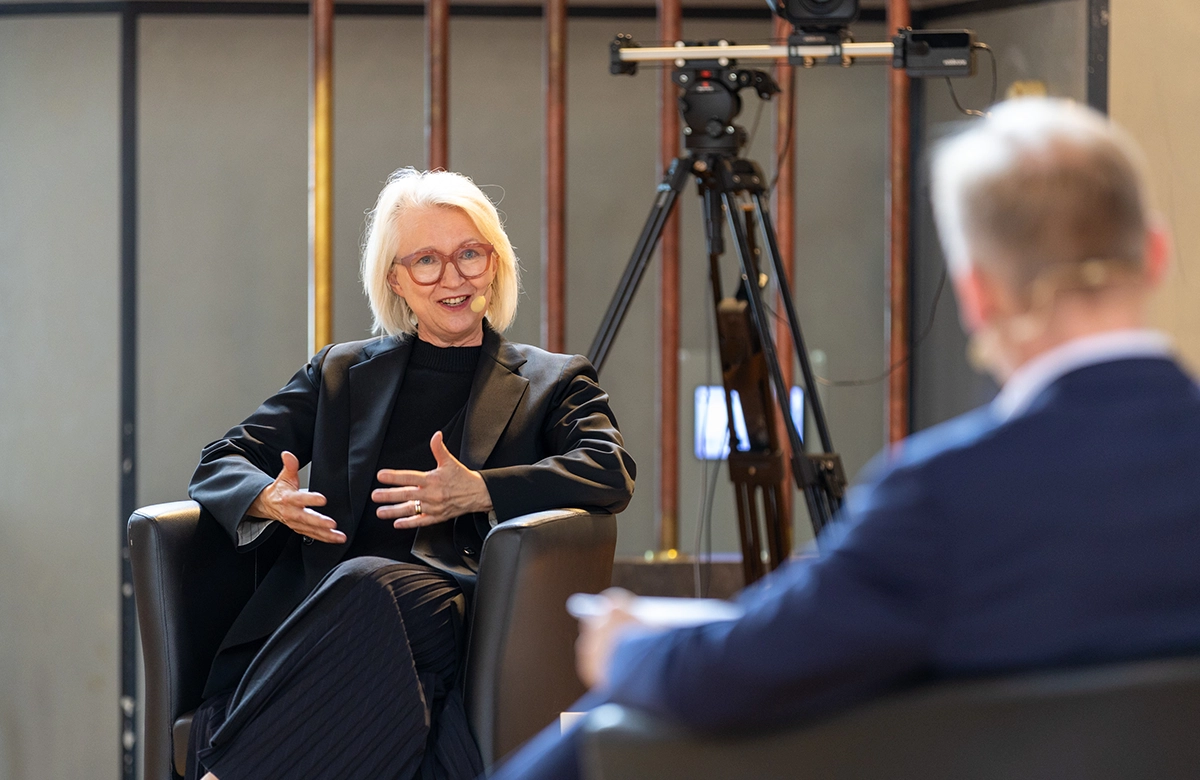
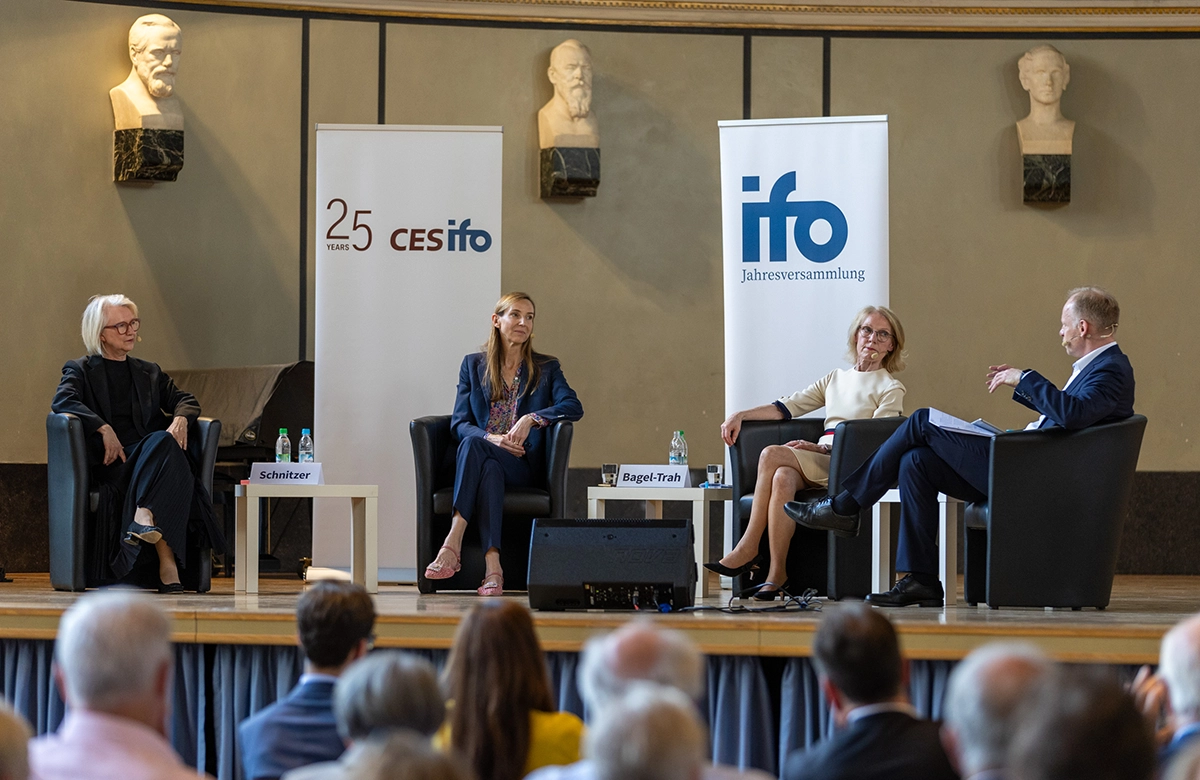
The Social Market Economy of the Future
Looking ahead to 2049, panelists envisioned Germany as an innovation hub, leveraging freedoms to foster technological and social advancements. Germany’s potential as an industrial powerhouse, thriving within global ecological limits and celebrated for its social achievements, positions it as a globally attractive destination for labor market immigration.
Das vollständige Video zur Jahresversammlung sehen Sie hier: